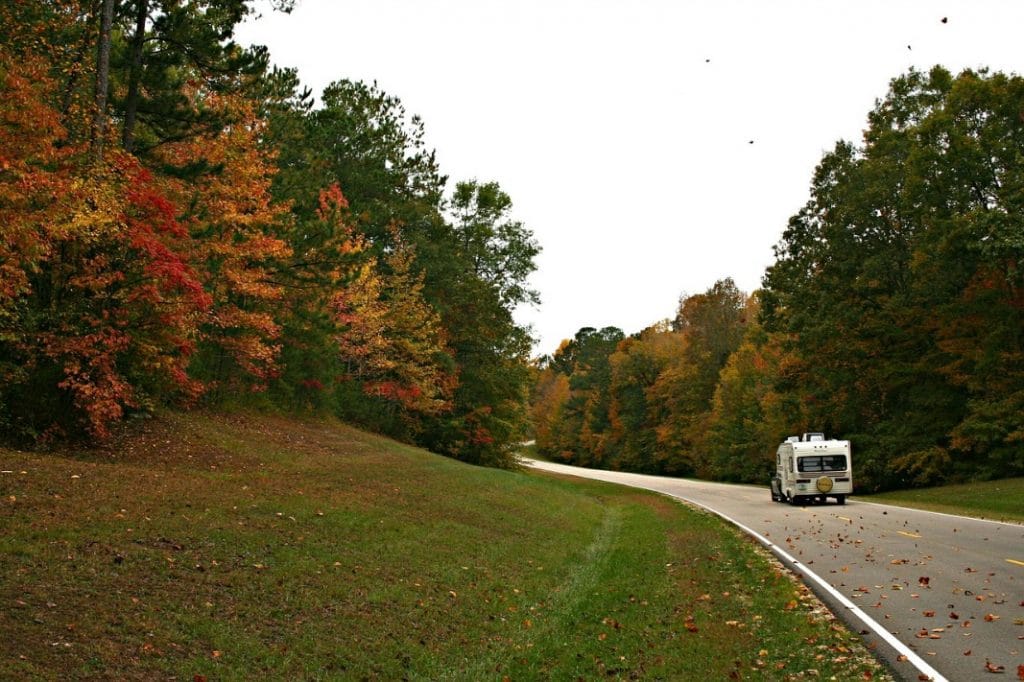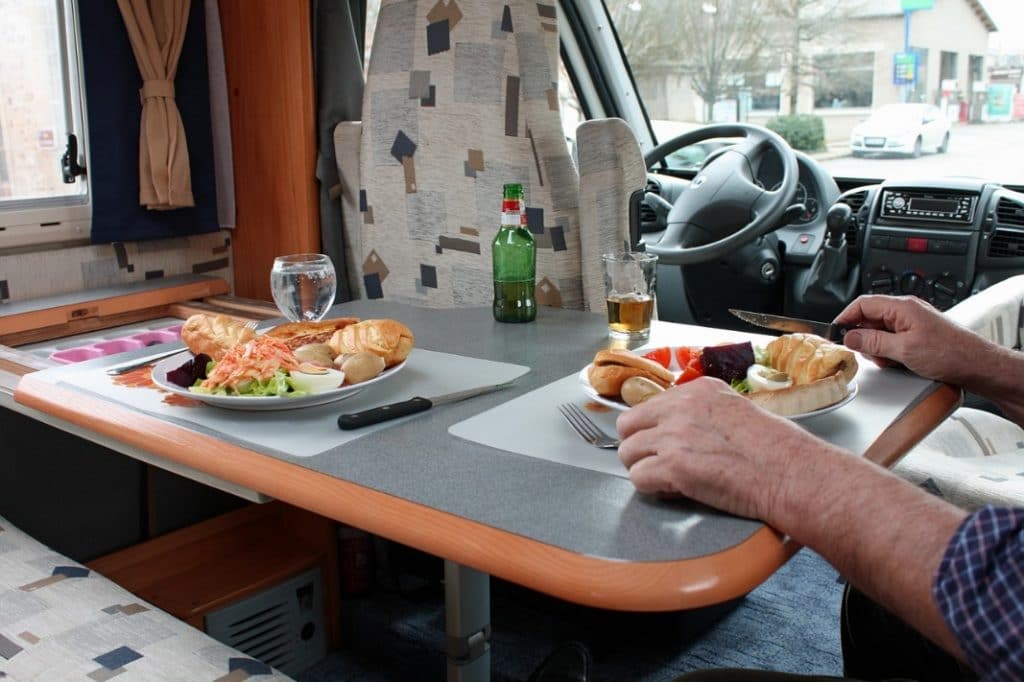This is a guest post by Lisa Fimberg. Lisa is a writer for ConsumersAdvocate.org, a site that reviews everything from the best RV insurance to the best homeowners insurance.
We recently had a major insurance claim on our RV after it was severely damaged in a Colorado hail storm. We were out of our home on wheels for a few months while it was getting repaired (we needed a whole new roof on the coach, plus a new hood and door panels on the cab). We were so grateful we had a good insurance policy that provided us with a monthly stipend to use towards accommodations and a rental car.
We knew our readers would benefit from the research that the team at Consumers Advocate has done and were happy to partner with them for this post.
When you purchase that special RV, whether it’s a mini-camper or any other travel van, RV insurance is really important to consider. Even if you’re just taking a road trip and use your camper for vacations, RV insurance can help with all the costs if you get in an accident while out on the road.
Some states even require it by law.
RV insurance isn’t that different from car or any other type of insurance. It helps you take care of the costs of your van or trailer if something were to happen to you or it. You already invested some good money into your motorhome or whatever camper you own and it’s a good idea to protect that investment.
If you are looking to purchase RV insurance, some things to consider:
Standard Coverage
A basic RV insurance policy will include different variations of coverage, but in a basic policy, you can expect the following coverage options to be included when getting a quote:
Liability insurance: To drive an RV, you need at least the minimum amount of liability coverage that your particular state requires for auto insurance. If you are in an accident and it is your fault, liability coverage with cover the other person’s damage or injury up to your specific limit amount.
Comprehensive and collision coverage: This coverage will help you pay for any repairs or damage to your RV if you run into another car, hit a tree, sign or anything that is your fault. Comprehensive coverage will also cover a number of other potential issues including vandalism, theft of your RV, or any type of animal collision.
A comprehensive and collision policy comes with a standard deductible, like auto insurance, which your insurance company will deduct from your claim payment. For instance, if you were to file a claim for $3,000 to repair your RV and you have a $500 deductible amount, you would have a settlement of $2,500.
Underinsured motorist coverage: This coverage will help you if someone hits you who does not have any insurance or not enough insurance to pay for either your injury or damage.
Medical payment coverage: If you happen to be the cause of an RV crash, this coverage will pay for any treatment for you and the passengers in your RV, and it doesn’t matter who caused the incident.

Other Coverage Options
There are many other types of coverage that you can add to your basic policy if it is of interest to you.
Some other coverage options that you can add:
Personal Property coverage: Personal property coverage is a great addition if you want to cover the valuable belongings inside your RV. This a great option if you live in your RV and have not only costly items, but those that are meaningful to you.
You will be covered for any television, laptops, jewelry or any of your personal belongings and any theft or damage to them.
Vacation or campsite coverage: Vacation or campsite coverage will help pay for anything that happens at the campsite where you park your RV or the vacation site that you visit. This can help with theft or injury.
Roadside or Towing coverage: If you get a flat tire and need to be towed or if you have any kind of mechanical failure, it’s a nice option to have so you will be towed to the right body shop to fix the repairs.
Total Replacement coverage: If your RV gets stolen or totaled, this coverage will help with the entire replacement cost of the RV.
Full Time Coverage: This is in addition to the other coverage options and can include more medical and liability coverage if you live in your RV for at least five months each year.
Cost of RV Insurance
Of course, the cost of RV insurance is important to consider when buying a new policy. As with any other type of insurance, it really depends on the minimum liability that your state requires and how much coverage you want to purchase.
The best way to get a good rate for RV insurance is to first decide on the specific coverage that you want and then get multiple quotes to land the best price.
Try to Lock In A Good Premium Rate
Your premium might change each billing cycle due to the number of claims you file, the age of your RV and other factors. If you can secure a certain premium rate before you purchase a policy, it can be beneficial so you aren’t paying different amounts each renewal period.
Try to lock in a rate on your RV insurance for a minimum of five years so you aren’t paying different premium amounts each year. Some companies will even allow you to lock in a rate for up to ten years.
Online Customer Reviews
Once you have narrowed down the coverage that you want and have a few good quotes, take a look at the on-line reviews.After all, you want to make sure that you are not only getting the best price, but that the company pay backs its claims fully and in within a decent time frame.
You also want to make sure that, when you do get some quotes, that the customer service representative is friendly and knowledgeable.

Final Thoughts on RV Insurance
Whether you use your RV as a home or to take out on vacations, the coverage that works for you might be different. For example, if you use the RV as your home, a full-time coverage policy might work best for you. It protects you against any loss or even liability when your RV is even stationed at a camp site. It can also cover the cost of any emergency or medical expense if anyone gets hurt even close to your RV.
On the other hand, if you use your RV as a vacation ride, a campsite liability coverage policy with an additional storage option could work well. This will help protect you for almost anything whether you’re just driving on the road or parked at a camp site.
When you are ready to purchase RV Insurance, think about the coverage you need, get a few quotes, read the on-line reviews and you’ll feel good knowing that you did your homework and got the best price and coverage for your particular situation.
Related Posts:
Choosing the Right RV: Why We Switched From a Fifth Wheel to a Class C


I liked that you said that one thing to consider when you own an RV is to make sure that you have good insurance so that you can ensure protection if any unfavorable event were to happen. I have been thinking about getting an RV but I have been worried that I would end up getting in an expensive accident. I will be sure to get good insurance so that I won’t have to worry about this situation.